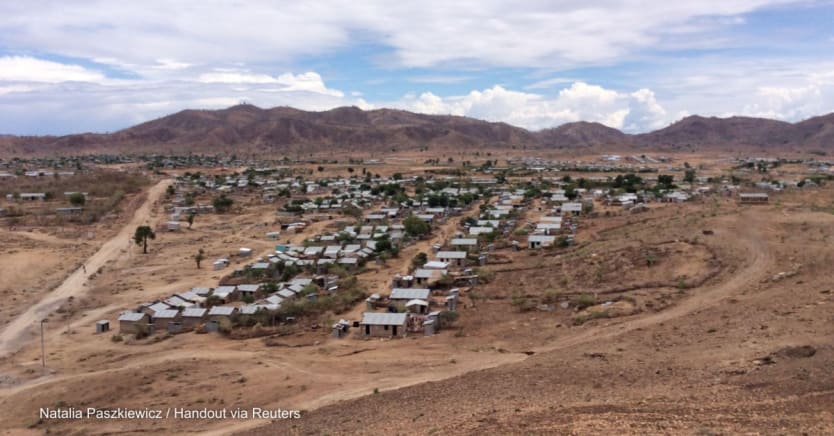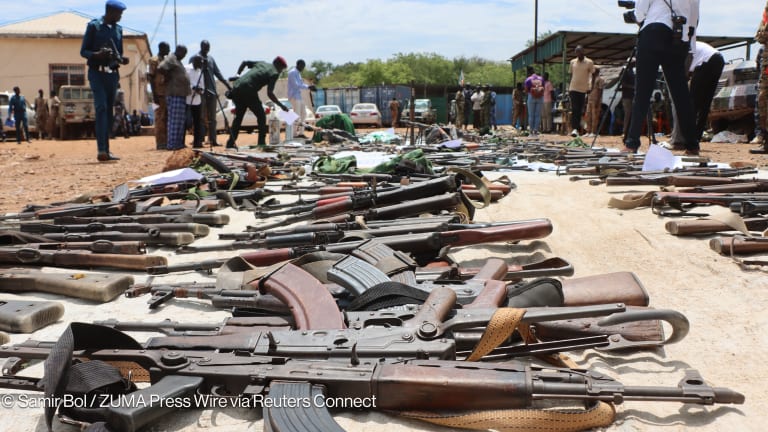
The government of Ethiopia declared an “indefinite humanitarian truce” in the war-torn Tigray region Thursday, which it said is to “ensure the free flow of emergency humanitarian aid to all those in need of assistance.”
Allowing unimpeded humanitarian access has been an urgent demand of the aid community over the 16-month-long conflict, as communities were deprived of access to food, health care, fuel, communications, and banking services.
Opinion: In Tigray, we are demanding food and medicine, not bombs
The solidarity that the world showed health workers during the COVID-19 pandemic has been missing for those in Tigray, who have been impacted by a siege on the Ethiopian region and left delivering care with none of the necessary supplies.
In the statement, the government called on the donor community to increase assistance and on Tigrayan forces to withdraw from neighboring regions. Though members of the aid community are optimistic that the truce could result in humanitarian access, they also caution that government statements haven’t always resulted in tangible changes on the ground, saying the truce should be extended to all forces involved in the conflict.
The government has enforced a de facto blockade on Tigray that has largely halted the delivery of aid, with only limited shipments allowed in. While neighboring regions Afar and Amhara have also been pummeled amid the ongoing conflict, the government’s blockade was restricted to Tigray.
An estimated 9.4 million people are in need of humanitarian assistance in northern Ethiopia. According to the most recent situation report from the United Nations Office for the Coordination of Humanitarian Affairs, families in Tigray “are exhausting all remaining means to access food, with three quarters of the population reported to be using extreme coping strategies to survive.” As of mid-March, there were only about 800 metric tons of food supplies in the region. Nearly half a million children in Tigray are estimated to be malnourished.
In its statement Thursday, the Ethiopian government called upon the donor community “to redouble their generous contributions to alleviate the situation.” The government added that it “reiterates its commitment to work in collaboration with relevant organizations to expedite the provision of humanitarian assistance to those in need.” It also called on “the insurgents in Tigray to desist from all acts of further aggression and withdraw from areas they have occupied in neighboring regions.”
The truce only has the "desired outcome of improving the humanitarian situation on the ground" if it is "reciprocated by the other side,” the government said.
Fuel shortage leaves Ethiopia's Tigray ‘running on fumes’
In Ethiopia’s Tigray region, the delivery of food, water, and medicine to people in need has become nearly impossible.
An aid worker who spoke to Devex on condition of anonymity, fearing retribution from the government, said that while there is hope the government will follow through on this truce declaration, experience throughout the course of the conflict has shown that government statements haven’t always resulted in real changes.
“The test here is whether or not this is a genuine truce,” the aid worker said.
The government’s messaging has recently shifted to saying that the reason humanitarians aren’t gaining access is because Tigrayan forces have pushed into neighboring regions and that the conflict is what is cutting off access, the aid worker said.
“What we don’t want them to do now is say, ‘We’ve given you a truce, and now it’s all on the Tigrayans.’ That’s a sort of a disingenuous statement, because realistically there is not only one road into Tigray. There are many roads, most of which are controlled entirely by forces allied to the government. If the government really wanted to open the route, they could make it happen,” the aid worker said.
Another factor in the success of this truce includes the parties involved, the aid worker said, adding that a previous cease-fire didn’t seem to apply to the government’s allies, which continued fighting.
Lauren Blanchard, a specialist in African affairs with the U.S. Congressional Research Service, echoed this, tweeting: “Ethiopia's federal govt says it is declaring a humanitarian truce & calls on Tigray forces to reciprocate - these are not, however, the only forces involved in hostilities. Are regional forces and militias in Amhara & Afar willing to participate in a truce & allow aid to flow?”
“Will it result in a meaningful change on the ground?” the anonymous aid worker said. “Will it result in access? Will we see convoys, which include fuel, reaching people in Tigray? What about the long-standing issues like the telecoms blockade, and the banking, and the blockade on commercial traffic into Tigray? These, of course, are also critical.”
Search for articles
Most Read
- 1
- 2
- 3
- 4
- 5








